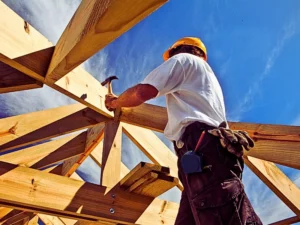Legionnaires’ disease is a severe form of pneumonia caused by inhaling the Legionella bacteria. It can lead to serious health complications and, in some cases, even be fatal. While Legionnaires’ disease is commonly associated with contaminated water systems, there have been instances where air conditioning systems were implicated. In a hot and arid climate like Las Vegas, where air conditioning is essential for comfort, the question arises: Can you get Legionnaires’ disease from air conditioning in Las Vegas? Understanding the answer may help you avoid illness and, if you should contract Legionnaires’ disease, hold the responsible party liable for your associated financial losses.
How Legionella Bacteria Spreads
Legionella bacteria, responsible for causing Legionnaires’ disease, is a potentially deadly pathogen that thrives in water environments. Understanding how these bacteria spread is crucial in preventing outbreaks and safeguarding public health, as well as understanding how to prevent Legionnaires’ disease in the home. One often underestimated mode of transmission is through air conditioning systems.
Air Conditioning Systems and Legionnaires’ Disease in Las Vegas
Air conditioning systems are an ideal breeding ground for Legionella bacteria. In Las Vegas, where the climate demands continuous cooling, the risk of proliferation of these bacteria is particularly high.
Cooling towers, a crucial component of many air conditioning systems, are designed to release heat into the atmosphere. They work by allowing warm water to flow over a fill material while a fan draws air through the water, causing some of it to evaporate. This process cools the remaining water, which is then recirculated through the system.
However, if the water in the cooling tower becomes contaminated with Legionella, the fan can aerosolize the bacteria, releasing it into the air. People in proximity can then inhale these microscopic droplets, potentially leading to infection.
Air ducts and ventilation systems play a vital role in distributing conditioned air throughout buildings. Unfortunately, if these systems are not adequately maintained, they can become a conduit for Legionella dissemination.
Dust, debris, and stagnant water in ducts provide an ideal environment for Legionella growth. As air circulates, it can carry the bacteria to different parts of a building, putting occupants at risk.
What Are the Risk Factors Associated With Air Conditioning Systems?
Understanding the risk factors associated with air conditioning systems is crucial for staying safe yourself, and helping to prevent Legionnaires’ disease outbreaks.
Improper Maintenance
One of the most significant risk factors is inadequate maintenance. Cooling towers, air ducts, and ventilation systems must be regularly inspected, cleaned, and disinfected to prevent the buildup of Legionella and other harmful microorganisms.
In Las Vegas, air conditioning systems often operate around the clock, making routine maintenance even more critical. Neglecting this aspect can lead to a rapid proliferation of bacteria.
Stagnant Water
Stagnant water provides an ideal breeding ground for Legionella. In air conditioning systems, water can become stagnant in poorly designed or improperly functioning components. This is especially true in areas with high temperatures, as warm water encourages bacterial growth.
To mitigate this risk, systems should be designed with features that promote water circulation and prevent stagnation. Regularly flushing and treating water reservoirs can also help maintain a healthy system.
Inadequate Disinfection Protocols
Disinfection is a crucial step in preventing Legionella contamination. However, if disinfection protocols are not followed rigorously or if the chosen disinfectants are ineffective against Legionella, the bacteria can persist.
Las Vegas, with its arid climate, may face challenges in maintaining appropriate disinfection levels due to the scarcity of water. Therefore, it becomes even more imperative to use effective and sustainable disinfection methods.
Legionnaires’ Disease Impact on Public Health and the Local Community
In Las Vegas, a thriving tourist destination, the risk of Legionnaires’ disease is elevated due to the large number of hotels, resorts, and public spaces. Tourists, who may not be familiar with the local water systems, are at a higher risk of exposure. Additionally, individuals with compromised immune systems, such as the elderly or those with chronic illnesses, are more susceptible to severe complications from the disease.
This disease from stagnant water often presents with symptoms that can be mistaken for common respiratory infections, making early diagnosis challenging. This delay in treatment can lead to more severe health consequences and increased healthcare costs. Furthermore, outbreaks of Legionnaires’ disease can strain local healthcare facilities and resources.
Beyond the immediate health concerns, outbreaks of Legionnaires’ disease can have a detrimental impact on the local community’s economy and reputation. News of an outbreak can lead to cancellations and reduced bookings for hotels and resorts, affecting revenue and employment in the hospitality industry. Additionally, a public health crisis can erode trust in local services, potentially deterring future visitors and residents.
Preventative Measures and Regulations
Las Vegas recognizes the critical need for preventative measures and has implemented strict regulations to mitigate the risk of Legionnaires’ disease outbreaks. These measures are designed to safeguard both residents and visitors, ensuring a safe and enjoyable environment for all.
Water Management Programs
Las Vegas mandates comprehensive water management programs for large buildings and facilities. These programs include regular testing and treatment of water systems to detect and eliminate Legionella bacteria. By proactively addressing potential risks, these programs are instrumental in preventing outbreaks.
Routine Inspections and Maintenance
Local authorities enforce stringent regulations for the maintenance and inspection of cooling towers, a common source of Legionella contamination. Regular checks ensure that cooling systems are clean, well-maintained, and operating within safe parameters.
Guidelines for Regular Air Conditioner Maintenance and Inspections
Given the arid climate of Las Vegas, air conditioning systems play a crucial role in providing comfort and safety for residents and visitors. However, they can also serve as breeding grounds for Legionella if not properly maintained. Here are some essential guidelines for ensuring the safety of air conditioning systems:
Regular Cleaning and Disinfection
Air conditioning units should be cleaned and disinfected on a routine basis. This includes removing dust, debris, and any accumulated water, which can harbor Legionella bacteria.
Temperature Monitoring
Maintaining appropriate temperatures in air conditioning systems is vital for preventing Legionella growth. Ensure that the water temperature remains below 68 °F (20 °C) to discourage bacterial proliferation.
Professional Inspections
Engage certified professionals to conduct regular inspections of air conditioning systems. They can identify and address any potential issues before they escalate into a health risk.
By adhering to these guidelines and actively participating in local preventative measures, both individuals and businesses in Las Vegas can contribute to a safer and healthier community, free from the threat of Legionnaires’ disease.
When to Hire a Legionnaires’ Disease Lawyer in Las Vegas
Did you contract Legionnaires’ disease while at a Las Vegas resort? If so, you may need to seek legal guidance to understand your rights and options.
If you or a loved one have contracted this illness, hiring a Legionnaires’ disease lawyer offers numerous benefits that may aid in successfully recovering compensation for your illness-associated losses. An experienced attorney will evaluate the circumstances of your contraction of the disease and help determine if there are grounds for legal action.
If your illness can be directly linked to a property with a negligent maintenance of water systems, HVAC systems, or pools/spas, you may have a valid case. A Legionnaires’ disease lawyer will investigate the property thoroughly, gathering evidence to support your claim.
If you are part of an outbreak or cluster of Legionnaires’ cases linked to a common source, such as a hotel, hospital, or public facility, it’s essential to seek legal advice. Establishing liability in these cases can be complex, and a specialized lawyer will have the experience needed to navigate the legal process.
Dealing with insurance companies can be a daunting task, especially when facing a severe illness like Legionnaires’. A lawyer can advocate on your behalf, ensuring that you receive the maximum compensation possible for your case.
In tragic cases where a loved one has succumbed to Legionnaires’ disease, it’s vital to consult an attorney who specializes in wrongful death claims. He or she can guide you through the process of seeking compensation for medical expenses, funeral costs, and the emotional toll this loss has taken on your family.
Remember, time is of the essence in legal matters. The sooner you consult a Legionnaires’ disease lawyer, the better your chances of building a strong case. He or she will provide invaluable guidance, ensuring your rights are protected, and you have the best chance of obtaining the compensation you deserve.
Possible Damages in a Legionnaires’ Disease Case
Legionnaires’ disease can lead to severe health complications, often necessitating extensive medical treatment and long-term care. In addition to the physical toll it takes, it can also have significant financial and emotional repercussions. Through a Legionnaires’ disease lawsuit, you may recover compensation for these losses.
Some of the most common recoverable losses include:
Medical Expenses
Treatment for Legionnaires’ disease can be a prolonged and costly affair. Hospitalization, intensive care, antibiotics, and other medications are often required to combat the infection. Moreover, follow-up care, rehabilitation, and additional treatments may be necessary for a full recovery. These expenses can accumulate rapidly, placing a substantial financial burden on the affected individual and their family.
Lost Wages and Income
The severity of Legionnaires’ disease may necessitate extended time off work, or even render an individual temporarily or permanently disabled. This can result in significant lost wages and income, further exacerbating the financial strain on the victim.
Pain and Suffering
The physical and emotional distress experienced by those afflicted with Legionnaires’ disease can be profound. Symptoms may range from fever and cough to severe pneumonia, which can lead to intense suffering and discomfort. This pain and suffering is eligible for compensation in many legal jurisdictions.
Emotional Distress and Mental Health Impact
The psychological toll of battling a severe illness like Legionnaires’ disease should not be underestimated. Anxiety, depression, and post-traumatic stress disorder (PTSD) are common among survivors. Seeking therapy or counseling may become a crucial part of the recovery process, incurring further expenses.
Wrongful Death
Tragically, Legionnaires’ disease can lead to fatal outcomes, especially in cases where prompt and appropriate treatment is not administered. In such instances, surviving family members may be entitled to pursue a wrongful death claim, seeking compensation for funeral expenses, loss of income, and emotional suffering.
The damages incurred in Legionnaires’ disease cases extend far beyond physical health. The financial, emotional, and psychological consequences can be long-lasting. Seeking legal advice and representation is crucial for individuals and families facing these challenges to help answer the question, “Should I settle my personal injury dispute out of court?,” and ensure they receive the compensation they deserve.
What Is the Statute of Limitations for a Legionnaires’ Disease Claim?
The statute of limitations for a Legionnaires’ disease claim in Nevada is typically two years. As such, if you believe you contracted Legionnaires’ disease due to the negligence of a party (such as a property owner or facility manager), then you have a window of two years from the date of diagnosis to file a lawsuit.
If you wait too long and file your lawsuit outside the allowed timeframe, it may result in the court dismissing your case. Consequently, you may lose your right and ability to seek to recover compensation for your illness-associated losses.
Exceptions to the state’s statute of limitations exist in certain circumstances. For example, if a person did not immediately realize he or she had contracted Legionnaires’ disease, or if the source of the infection was not immediately evident, the statute of limitations might begin when the person reasonably should have discovered the illness or its cause.
Consulting with an attorney who specializes in personal injury law in Nevada may prove beneficial to understand the specific rules and exceptions that may apply to your Legionnaires’ disease case. A lawyer can help confirm that you can get Legionnaires’ disease from air conditioning, and advise you of the current statute of limitations and any applicable exceptions based on the most recent legal guidance in the state.





